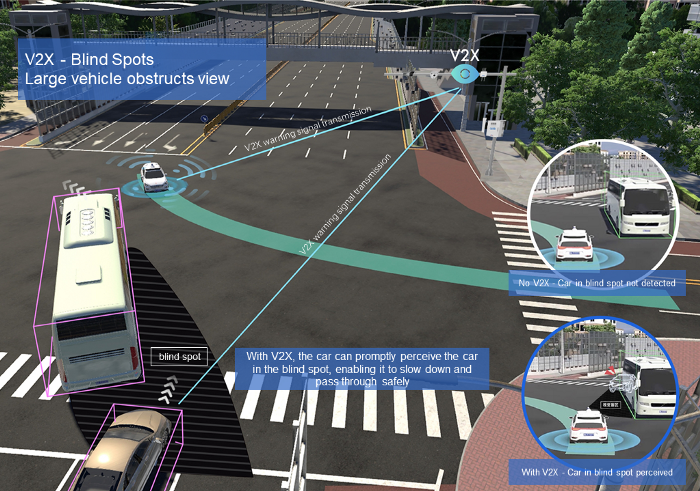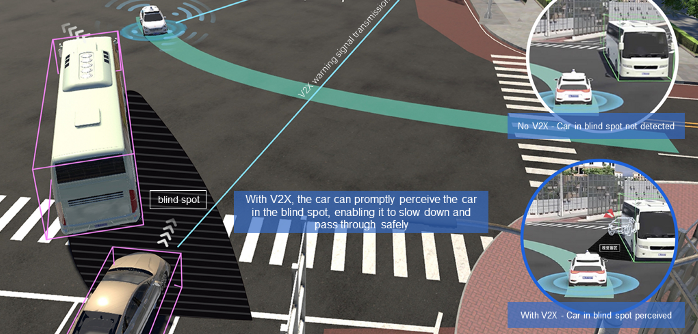Baidu Apollo says that its latest development project, Apollo Air, created in partnership with the Institute for AI Industry Research (AIR) at Tsinghua University, is the world’s first and only vehicle-to-everything (V2X) technology that enables L4 autonomous driving on open public roads with roadside sensing.
“Apollo Air enables a high degree of coordination between sensorless vehicles, smart roads and data clouds through a series of miniature roadside sensors with 5G and V2X wireless communication technology,” said Ji Tao, general manager of intelligent transportation product development at Baidu.
Simply speaking, Apollo Air is designed to supersede the ingrained perception system of an autonomous vehicle by commanding its autonomous driving capabilities through vehicle-road-cloud coordination. Using the system, Baidu claims that a regular vehicle without sensor equipment can achieve a degree of high-level autonomous driving capabilities.
Apollo says it has tested the system’s capabilities in L4 autonomous driving scenarios at several upgraded intersections in the cities of Beijing, Guangzhou and Cangzhou. Going forward, it hopes to gradually integrate parts of Apollo Air’s evolving road sensing capabilities within its mass-production-ready V2X offerings and provide reliable road sensing data for robotaxi operation and advanced driver-assistance systems (ADAS).
Apollo states that it developed the system to provide reliable redundancy for autonomous driving. This, it says, is due to most autonomous vehicles relying entirely on their embedded perception systems to navigate through traffic, leaving limited capacity to fully examine possible problems and defects of roadside sensing.
The company will also regularly release R&D data and use cases of Apollo Air under open-source and open-standards principles. By clarifying the infrastructural technical conditions that meet the demand for autonomous vehicles, the company says its goal is to build Apollo Air in the form of an industry-wide sharing platform.



